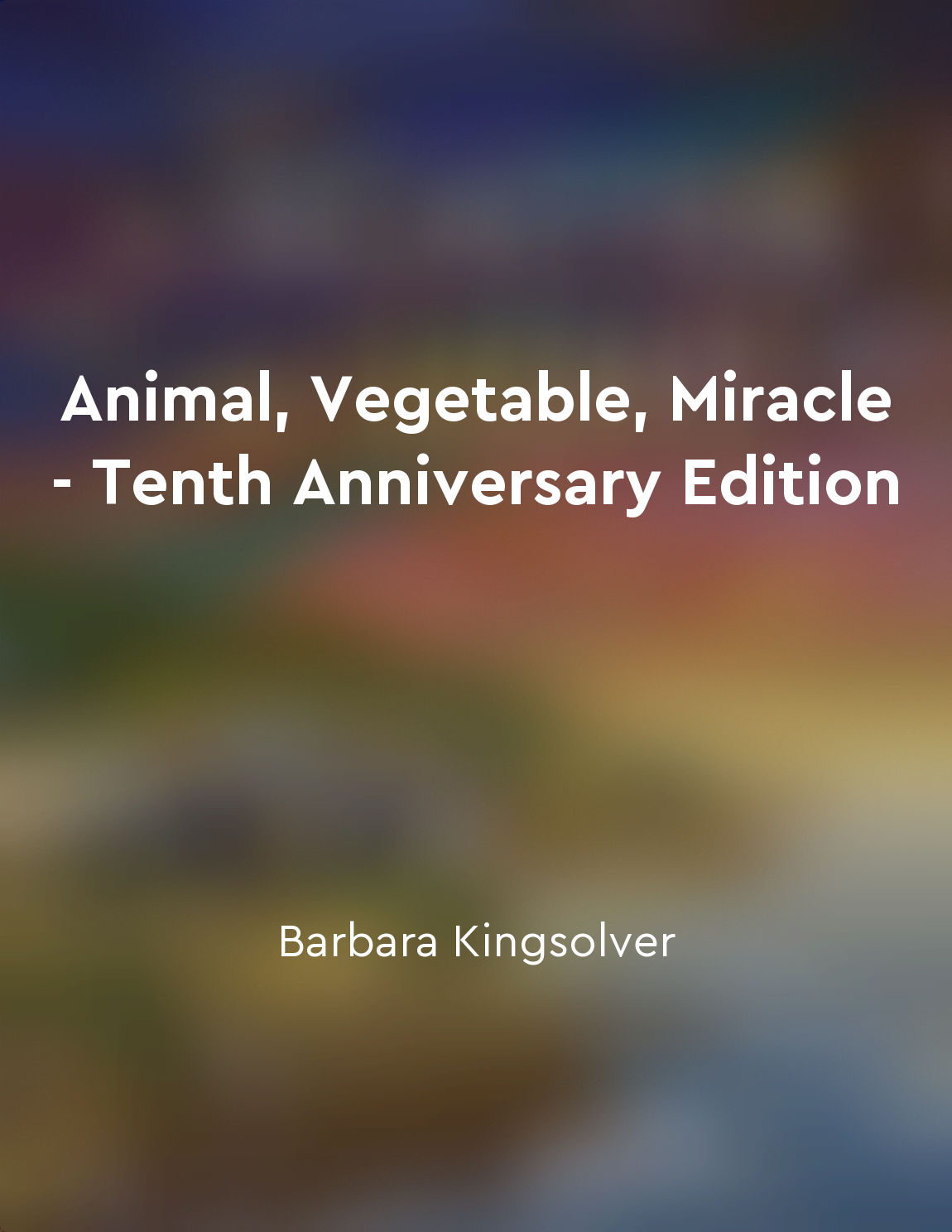Changes in land use and agricultural practices can impact pollinator populations from "summary" of The Forgotten Pollinators by Stephen L. Buchmann,Gary Paul Nabhan
Changes in the way we use land and practice agriculture can have a profound impact on the populations of pollinators. When natural habitats are cleared to make way for urban development or agriculture, the plants that pollinators rely on for food and shelter are destroyed. This loss of habitat can lead to a decline in pollinator populations as they struggle to find the resources they need to survive. Agricultural practices can also have a negative effect on pollinators. The use of pesticides and herbicides can be harmful to pollinators, either directly through contact or ingestion, or indirectly by reducing the availability of food sources. Monoculture farming, where large areas are planted with a single crop, can limit the diversity of plant species available to pollinators, making it harder for them to find the food they need. In addition to these direct impacts, changes in land use and agricultural practices can also affect the overall health of ecosystems. Pollinators play a crucial role in maintaining the health and diversity of plant communities by facilitating pollination, so a decline in pollinator populations can have far-reaching consequences for the ecosystem as a whole. It is essential for us to take these impacts into consideration when making decisions about land use and agricultural practices. By incorporating practices that support pollinator populations, such as planting pollinator-friendly plants and reducing the use of pesticides, we can help ensure the health and stability of our ecosystems for generations to come.Similar Posts
The connection between environmental health and human health
The health of the environment is intricately linked to the health of humans. Our well-being is intimately tied to the health of...

Eating locally reduces transportation emissions
When we choose to eat food that is grown and produced close to home, we are making a significant impact on reducing transportat...
Addressing food security issues
Addressing food security issues involves tackling the complex web of factors that contribute to hunger and malnutrition on a gl...
Birds are dying from pesticide exposure
Birds, those exquisite creatures that grace our skies with their songs and vibrant colors, are facing a grave threat. The very ...
The beauty of the natural world inspires awe
The grand show of nature charms and captivates the observer with its endless variety and beauty. The diversity of life forms, f...
Preserving biodiversity is critical for supporting pollinator populations
Preserving biodiversity is critical for supporting pollinator populations. The intricate web of life on our planet depends on a...
Preserving biodiversity is critical for supporting pollinator populations
Preserving biodiversity is critical for supporting pollinator populations. The intricate web of life on our planet depends on a...
Insects like bees and butterflies are key pollinators for many crops
The importance of insects like bees and butterflies as pollinators cannot be overstated. These tiny creatures play a crucial ro...
Pesticides disrupt ecosystems
Pesticides, lethal chemicals devised to kill insects, have brought about a sinister transformation in the countryside. They hav...
